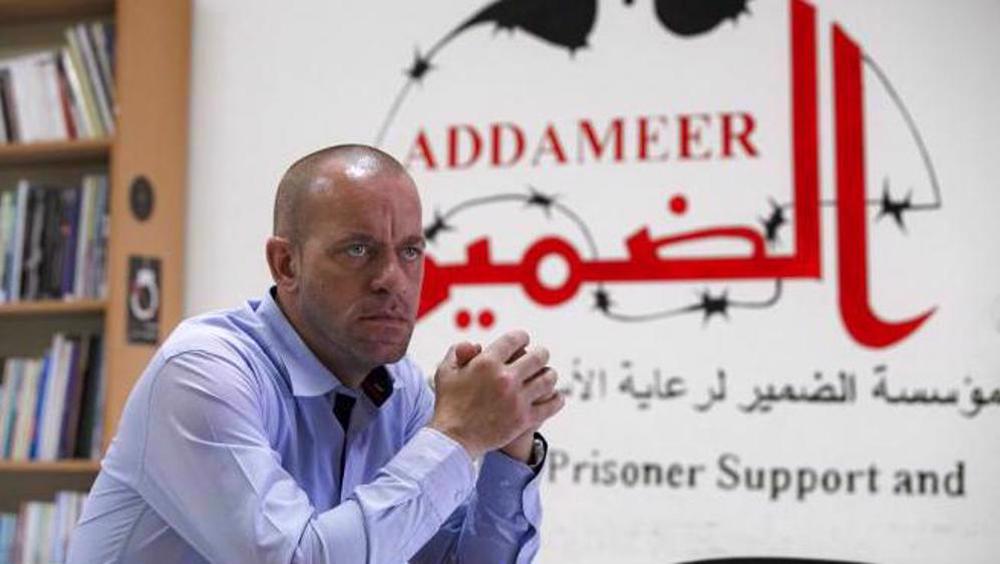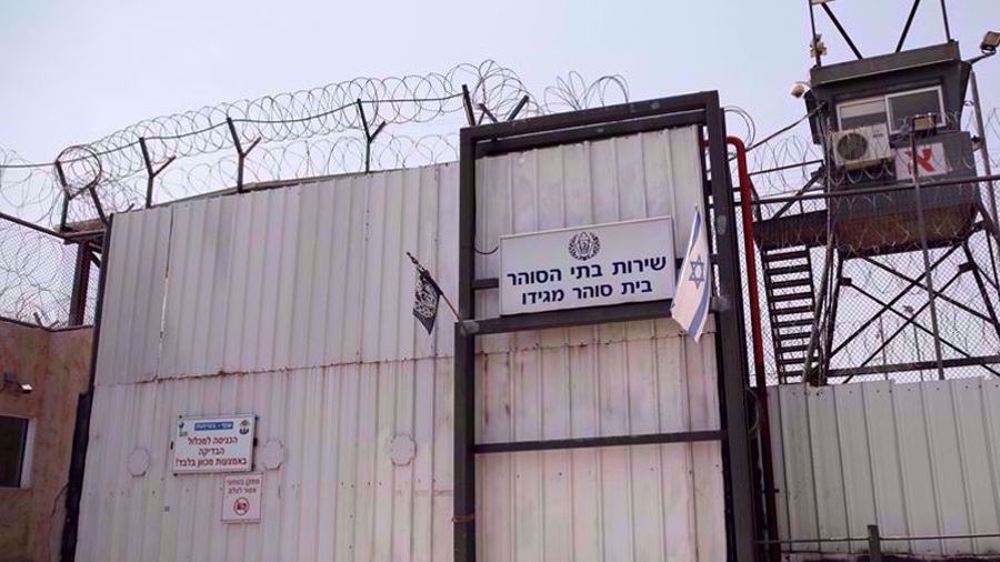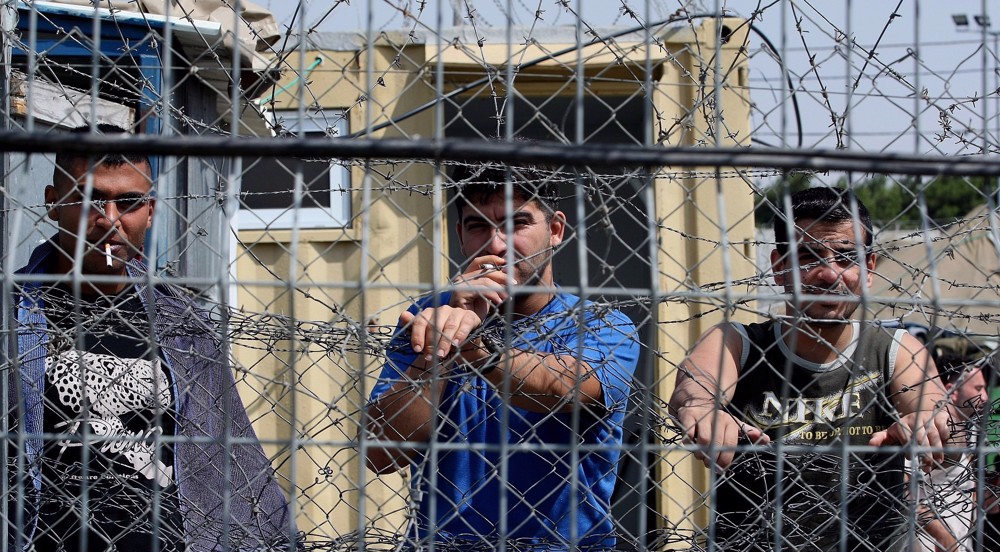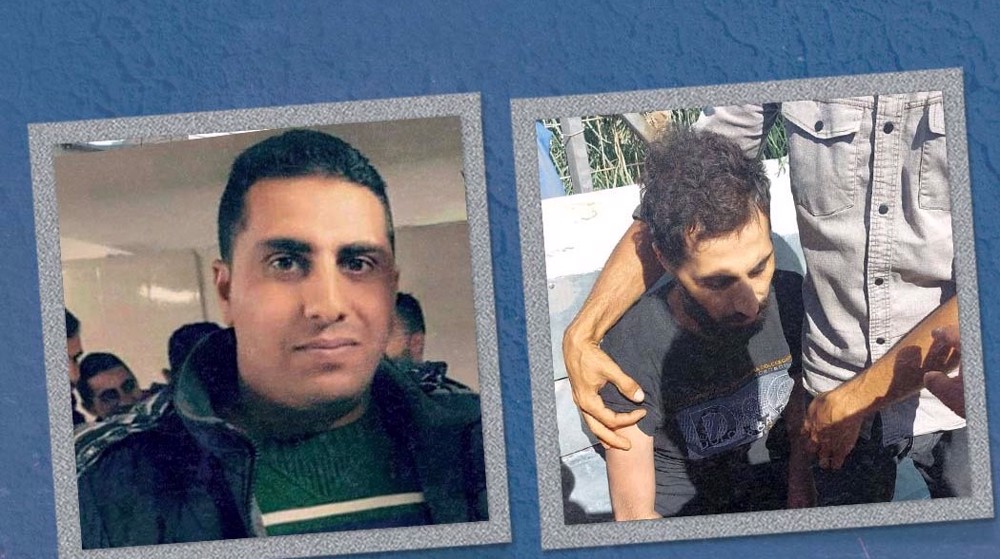Israel takes repressive measures against French-Palestinian prisoner on hunger strike
Israeli prison authorities have taken a series of repressive measures against prominent French-Palestinian human rights defender Salah Hamouri, after he started an open-ended hunger strike in protest against the regime’s policy of detention without charge or trial.
Hamouri’s lawyer reported the mistreatment after he visited him in the maximum security prison Hadarim in the northern occupied West Bank, where he is held in solitary confinement under a so-called administrative detention order, Quds Press reported.
According to his lawyer, the Israeli Prison Service (IPS) has transferred Hamouri to solitary confinement three days after he started his hunger strike, adding that he is now isolated in a 2x2-square-meter cell that lacks ventilation.
His lawyer further noted that other punitive measures imposed on Hamouri include depriving him of outdoor time or activity and family visits and the right to purchase supplies.
Hamouri is suffering from back, joint and head pains. He only drinks water and refuses any medical examination.
The 37-year old rights lawyer was arrested on March 7. He has been on strike against his detention without charge or trial since September 25, along with 29 other administrative detainees.
According to sources, Israel has extended Hamouri’s detention twice, the first time in June and the second time on September 5.
There are reportedly more than 7,000 Palestinians held in Israeli jails. Hundreds of the inmates have been incarcerated under the practice of "administrative detention." Some prisoners have been held without a charge for up to 11 years.
Palestinians and human rights groups say the detention policy violates the right to due process since the evidence is withheld from prisoners while they are held for lengthy periods without being charged, tried, or convicted.
The detention takes place on orders from a military commander and on the basis of what the Israeli regime describes as secret evidence.
Palestinian prisoners are kept under deplorable conditions lacking proper hygienic standards. They have also been subjected to systematic torture, harassment, and repression.
Palestinian inmate transferred to hospital after health complications
A prisoners' rights body has said that a Palestinian inmate has been transferred to hospital after his heath condition seriously deteriorated in an Israeli jail.
The Palestinian Commission of Detainees' and Ex-Detainees' Affairs said in a statement on Tuesday that cancer-stricken detainee Nasser Abu Hamid was taken to Assaf Harofeh Hospital from the notorious Ramla Prison after he suffered extremely sharp pains in his chest, back and abdomen, the Palestinian Information Center reported.
Despite his life-threatening health condition, Israeli authorities still refuse to release Abu Hamid.
The commission has already said that cancer has spread to other areas of the Palestinian inmate’s body, including in the brain and bones.
It has also noted that Abu Hamid suffers from a sharp drop in weight, severe pains all over his body and continuous muscle weakness.
A few months ago, the prisoner suffered from a health problem in his lungs, but the IPS delayed his transfer to hospital and medically neglected his issue before deciding to take him to the hospital.
Abu Hamid was first arrested in 1987 during the First Palestinian Indifada (Uprising). Thereafter, he spent his life in and out of Israeli detention centers and prisons up until 1996.
He was last arrested during the Second Intifada in 2002 for “resisting the Israeli occupation,” and sentenced to serving seven life sentences and an additional 50-year jail term.
His health condition has seriously deteriorated since August 2021. Last October, he underwent surgery to have his lung tumor removed and was transferred to the Israeli jail before a full recovery.
Hezbollah attacks Israeli forces after Lebanese homes blown up
World leaders, states hail ICC arrest warrants for Netanyahu, Gallant
MP: US accountable for possible Israeli 'foolishness' to attack Iraq
VIDEO | Israeli policies strangle Palestinian agriculture, economy
Iran's president offers condolences to Pakistan over terrorist attack
Canada’s Yukon town council at standstill over refusing oath to King Charles
Yemen's Houthi calls for jihad to protect Palestine against Israel
VIDEO | Internal rifts within Israel














 This makes it easy to access the Press TV website
This makes it easy to access the Press TV website